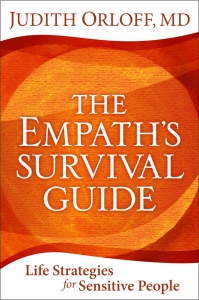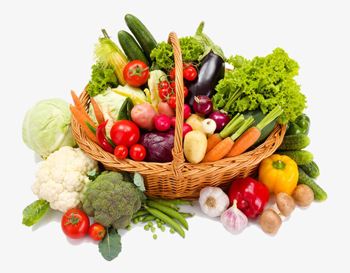To learn more techniques to manage your sensitivities get my PDF “Life Strategies for Sensitive People” Here.
Food is medicine. It can stabilize your sensitive system, but it can also throw it off.
I’ve observed in my psychiatric practice that overeating and food addictions are common among empaths. Food addiction is an uncontrollable craving for excess food for which many diets and weight loss programs often don’t succeed. Frequently, the specific addiction is to sugar or carbohydrates.
Excess weight can be a way of armoring yourself to stop absorbing other people’s stress or disturbing behavior. Putting on added pounds can make you feel more grounded, and it can act as a buffer against negativity. But reaching for sugar, carbohydrates, or junk foods for a quick fix, is a short-lived and unhealthy solution that gets addictively repeated.
Diets often fail for sensitive people because they are unaware that they are eating (and overeating) unhealthy foods to protect themselves from overwhelming or negative energy. When I point this out to my empath patients who are struggling with overeating, it’s a life-changing insight for them.
Take this quiz to determine if you’re a Food Empath.
Are You a Food Empath?
- Do you overeat when you are emotionally overwhelmed?
- Do you turn to sugar, carbs, and junk food to self-soothe discomfort?
- Are you highly sensitive to the effect food has on your body?
- Do you get mood swings, brain fog, or feel toxic from sugar, caffeine, sodas, or junk food?
- Do you have food allergies and intolerances such as to gluten or soy?
- Do you feel more protected from stress when you are heavy?
- Do you feel energized by healthy, clean food?
- Are you sensitive to preservatives or gluten in food?
- Do you feel more vulnerable to stress when you are thin?
Here’s how to interpret this self-assessment:
- Answering yes to 1-3 statements indicates that have some tendencies toward being a food empath.
- Answering 4-6 yeses indicates you have moderate tendencies to be a food empath.
- Answering more than 6 indicates you are definitely a food empath and use food to self-medicate stress and discomfort.
 6 Guidelines for The Empathic Eater
6 Guidelines for The Empathic Eater
If you are an empathic eater, you will need to pinpoint energetic stressors that trigger overeating such as a draining coworker, an argument with a friend, or feeling rejected. Train yourself to clear the stress as soon as possible to balance your system. Here are six tips from my book The Empath’s Survival Guide to release negativity before you overeat.
1. Breathe stress out of your body
When you feel stress, immediately focus on breathing slowly and deeply. This releases negative energy. Holding your breath out of fear traps toxicity in your body.
2. Water purifies you
Drink filtered or mountain spring bottled water when you’ve been exposed to negative energy and have the urge to overeat. Consume at least six glasses daily to keep flushing out toxins. Take a bath or shower. Water washes away impurities of all kinds.
3. Limit sugar intake
Although you may crave carbs and sugar (as well as alcohol), they will destabilize you and trigger mood swings. This makes you more susceptible to absorbing unwanted energy.
4. Eat frequent protein meals
Protein stabilizes empaths and gives them a sense of grounding. It’s optimal to have small protein meals four to seven times a day. This regimen will help you feel energetically stronger, safer, and more anchored in the world. (If you are vegan, lots of protein is crucial.)
5. Don’t let your blood sugar drop
Empaths are extremely sensitive to hypoglycemia. If you combine a busy life with low blood sugar, you’re bound to get overwhelmed. So don’t skip meals, especially if you are planning to be in a crowded place, when traveling, or in business meetings.
6. Consume lots of vegetables
If you tend to overeat and gain weight, vegetables will fill you up and limit your cravings. You can also include some whole grains, but be careful of overdoing it and triggering a carb addiction.
Food can be a source of energy or depletion. You want to develop dietary habits that serve your sensitivities rather than aggravating them. Then you can maximize the energy you receive from food and minimize the protective defense mechanism of empathic over-eating. With tools to protect and ground yourself, you won’t have the same cravings that used to undermine your best intentions.
Adapted from Dr. Judith Orloff’s ”The Empath’s Survival Guide: Life Strategies for Sensitive People,” a guidebook for empaths and all caring people who want to keep their hearts open in an often-insensitive world.




This helps answer a perplexing problem I’ve had for many years ( I’m 70) when I was working as an entrepreneur in a stressful career, I found myself uncontrollably craving sugar. I avoided having it in my house but had issues with it when away from home. It became an embarrassing and guilt ridden problem. I’m finally beginning to understand my behavior. Thank you. Understanding empath/sensitivity has changed my life and self perception.
After reading your article, I thought about when I would let go of what was bothering me, the weight also disappeared. Also, got to admit, junk food was definitely part of the problem. Now, I see the correlation between food and my emotions.
Thank you for putting into words something I am finally understanding about myself. In the last few years I have been slowly removing things from my diet, or at least considerably lessening them; caffeine, sugar … I increased my intake a vegetables and water …
When I am in a flare, I crave bread and cheese, and I noticed when I am hurt physically or emotionally that is my go to … 51 and still learning.
Love, Light and hugs to you.
Probably? But I’m not overweight. If I “junk out” I counter it with exercise outside in nature. I can’t let myself get overweight. I do wonder about several of those questions by changing just one word. Everything else in this puzzle is fitting perfectly. Are those sensatveties interchangeable?
Lots more ‘food ‘ for thought , I have definitely used food this way, I really do see the way my body has reacted , I have fainted a few times due to the blood sugar fluctuations , after alcohol though. I’m aware of the binges and have tried to control that more even before reading this. Il try harder now , thank you again , greatly appreciated , will
Right on…finally I know after 50 years…thankyou!
Thank you for the information Judith. I am 65 and just really learning why I am so different to my family, who are all extroverts. It’s great to have some things to do, as you suggested, instead of just knowing the theory..
I scored 6 but I didn’t have an answer for “Do you feel more protected from stress when you are heavy?” I don’t know the answer to that because i don’t think my life is that stressful, but maybe I’ve just conditioned myself to not feel it, shut it out. If I don’t pay attention it won’t bother me?. I wonder what my payoff is for being overweight? I know i would feel much better without the extra baggage and yet it resists. I know what to do but gravity keeps sucking me back into my old habits of noshing even though i’m not really hungry. I will try breathing and “vegging out” in lieu of taco chips.
Unbelievable! It’s only taken me 60 years through reading this material to figure out why all this was happening to me.
On the bright side, Reiki, universal energy, does help me and others that I work on. Read their thoughts and get helpful answers.
Thank you for sharing the above information.
Sincerely, Tara